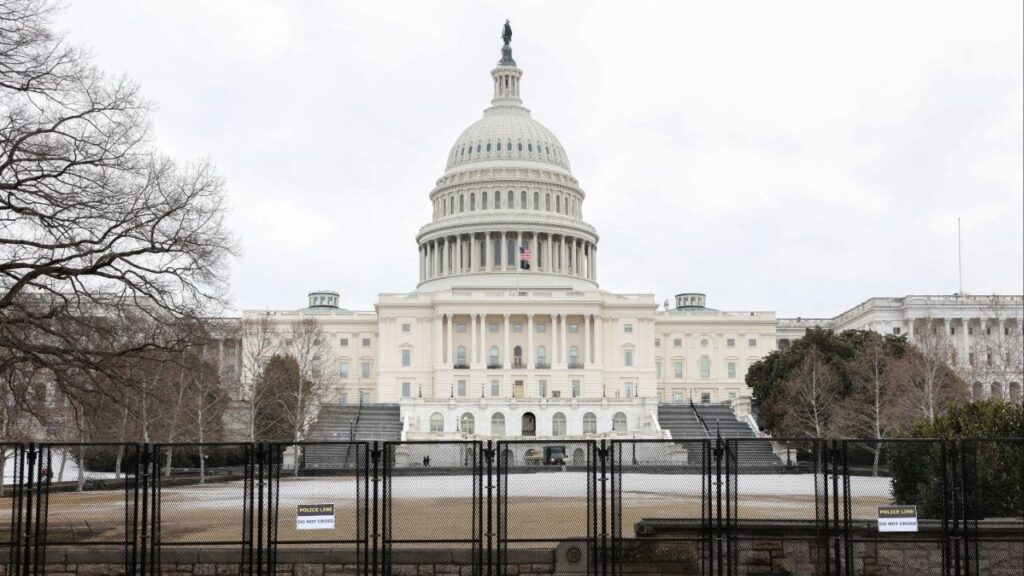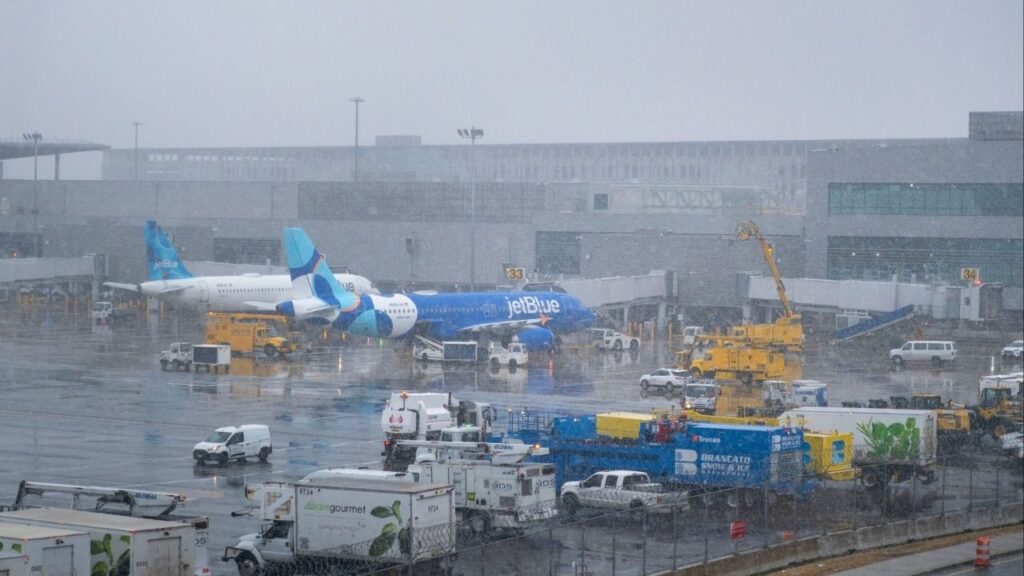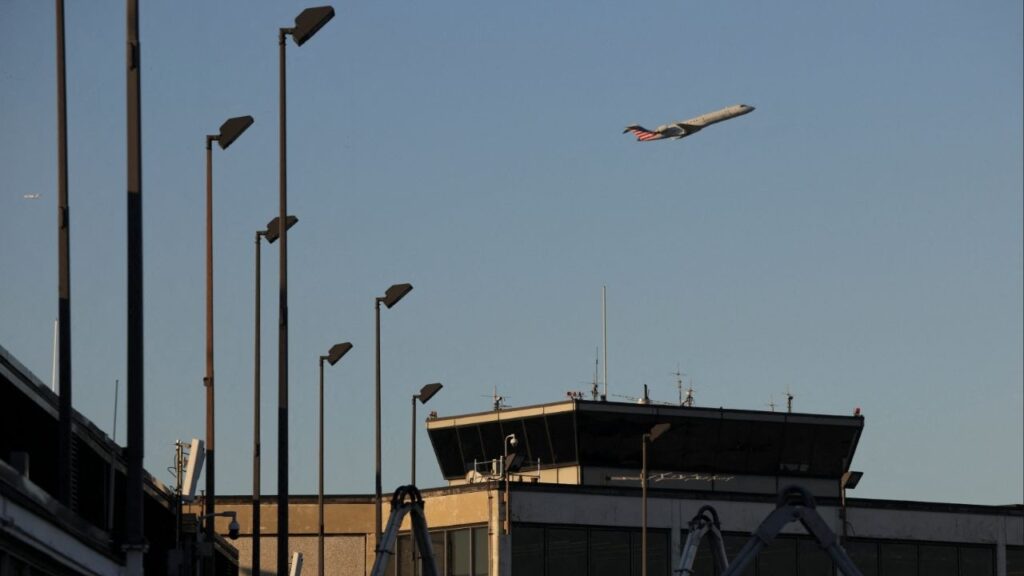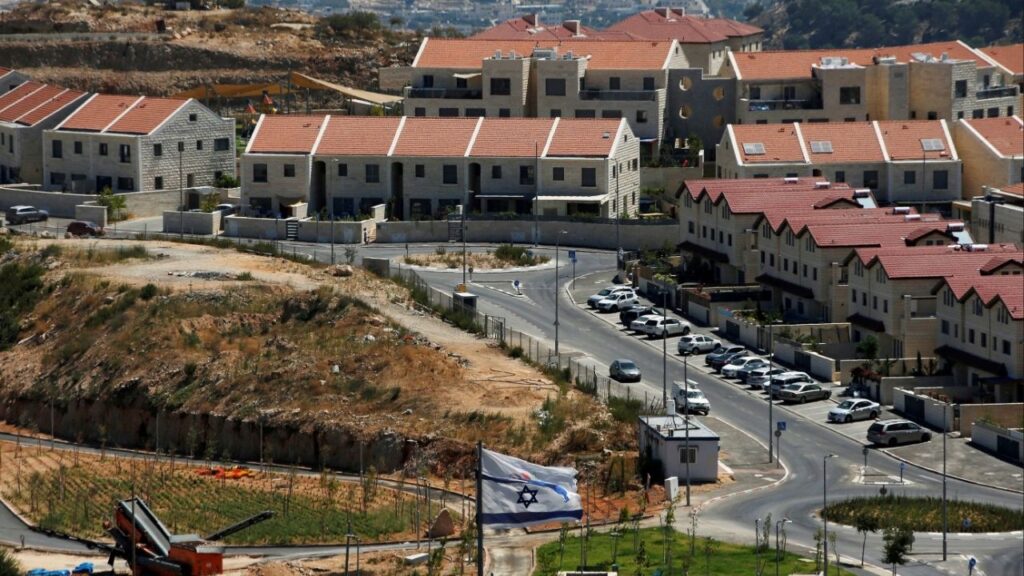Egypt voices doubts over Gaza cease-fire proposal as negotiations set to resume in Cairo amid growing regional tensions. (AP/Abdel Kareem Hana)

- Egypt skeptical of bridging proposal, citing lack of guarantees for Hamas and unclear Israeli withdrawal plans.
- Hamas unlikely to accept deal without assurances of permanent cease-fire and complete Israeli withdrawal from Gaza.
- Blinken's optimism for imminent agreement faces challenges as mediators prepare for crucial talks in Cairo.
Share
|
Getting your Trinity Audio player ready...
|
CAIRO — Key mediator Egypt expressed skepticism Wednesday as more details emerged of the proposal meant to bridge gaps in cease-fire talks between Israel and Hamas, a day before negotiations were expected to resume in Cairo.
The challenges around the so-called bridging proposal appear to undermine the optimism for an imminent agreement that U.S. Secretary of State Antony Blinken carried into his latest Mideast visit this week. Diplomatic efforts had redoubled as fears grow of a wider regional war after the recent targeted killings of Hamas and Hezbollah leaders, both blamed on Israel, and threats of retaliation.
Related Story: Blinken Visits Gaza Mediators in Pursuit of Cease-Fire Deal as Hamas, Israel ...
Egypt’s Concerns Over Hamas’ Acceptance
Officials in Egypt, in its unique role as both a mediator and affected party since it borders Gaza, told The Associated Press that the Hamas militant group will not agree to the bridging proposal for a number of reasons — ones in addition to the long-held wariness over whether a deal would truly remove Israel forces from Gaza and end the war.
One Egyptian official, with direct knowledge of the negotiations, said the bridging proposal requires the implementation of the deal’s first phase, which has Hamas releasing the most vulnerable civilian hostages captured in its Oct. 7 attack that sparked the war. Parties during the first phase would negotiate the second and third phases with no “guarantees” to Hamas from Israel or mediators.
“The Americans are offering promises, not guarantees,” the official said. “Hamas won’t accept this, because it virtually means Hamas will release the civilian hostages in return for a six-week pause of fighting with no guarantees for a negotiated permanent cease-fire.”
He also said the proposal doesn’t clearly say Israel will withdraw its forces from two strategic corridors in Gaza, the Philadelphi corridor alongside Egypt and the Netzarim corridor east to west across the territory. Israel offers to downsize its forces in the Philadelphi corridor, with “promises” to withdraw from the area, he said.
“This is not acceptable for us and of course for Hamas,” the Egyptian official said.
Related Story: Blinken Says Israel Accepts US Proposal to Bridge Gaza Impasse and Urges Hamas ...
Challenges in Reaching a Breakthrough
A second Egyptian official, briefed on the latest developments in negotiations, said there were few chances for a breakthrough since Israel refuses to commit to a complete withdrawal from Gaza in the deal’s second phase. The official said Israel also insists on keeping its forces in the Philadelphi corridor and having full control of the Netzarim corridor.
He also said Egypt told the U.S. and Israel it won’t reopen the Rafah crossing into Gaza, which borders Egypt and is a crucial entry point for humanitarian aid, without the complete withdrawal of Israeli forces from the Palestinian side and from the Philadelphi corridor.
Both Egyptian officials spoke on condition of anonymity to discuss the sensitive negotiations.
Mediators are scheduled to meet Thursday and Friday in Cairo for more talks on the proposal before submitting it officially to Hamas.
Related Story: Blinken Warns Now May Be the Last Chance to Get a Cease-Fire in the ...
Hamas’ Perspective on the Proposal
Hamas political official Bassem Naim said Tuesday the bridging proposal adopted several new demands from Israeli Prime Minister Benjamin Netanyahu, including that Israeli forces remain in Rafah, Philadelphi and Netzarim and searches of displaced Palestinians returning to northern Gaza. Israel has said the searches are necessary to find militants.
Naim said the proposal also includes unspecified changes to the exchange of hostages held in Gaza for Palestinians imprisoned in Israel and doesn’t guarantee that a cease-fire would remain in place during negotiations on the transition from the deal’s first phase to the second.
In previous versions of the cease-fire plan, the second phase would entail a permanent cease-fire, full withdrawal of Israeli forces from Gaza and the release of remaining male hostages, both civilians and soldiers
Blinken after his meetings in Egypt and in fellow mediator Qatar told journalists that the bridging proposal is “very clear on the schedule and the locations of (Israeli military) withdrawals from Gaza,” but no details on either have emerged.
Blinken also said that because Israel has accepted the proposal, the focus turns to doing everything possible to “get Hamas on board.” Egypt’s state-run Al-Ahram daily reported that Blinken received a “clear Egyptian demand for the U.S. to work towards a well-framed deal with clear deadlines and clear objectives to encourage Hamas to sign the deal.”
But there is skepticism, along with fatigue, among many in Israel about Netanyahu’s commitment to securing a cease-fire deal. “As long as the entire group of professional negotiators believes that Netanyahu is scuttling a deal, there won’t be any confidence,” commentator Nadav Eyal wrote in the daily newspaper Yedioth Ahronoth. “And, in the absence of confidence, Israeli society will remain torn and shattered.”
The war in Gaza, now in its 10th month, has caused widespread destruction and forced the vast majority of Gaza’s 2.3 million residents to flee their homes, often multiple times. Aid groups fear the outbreak of polio and other diseases.
The Oct. 7 attack by Hamas and other militants killed some 1,200 people, mostly civilians. Over 100 hostages were released during last year’s cease-fire in exchange for Palestinians imprisoned in Israel. Hamas is still believed to be holding around 110 hostages, though Israeli authorities estimate around a third are dead.
Israel’s retaliatory offensive has killed over 40,000 Palestinians, according to Gaza’s Health Ministry, which does not distinguish between civilians and combatants in its count.


















